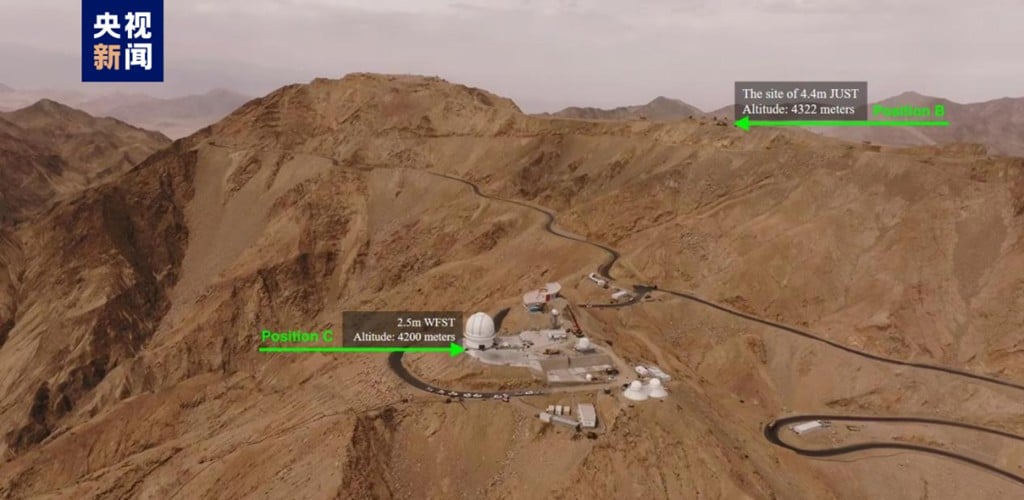Imagine peering into the depths of space, not just to see, but to truly understand. That’s the mission of the Jiaotong University Spectroscopic Telescope (JUST), a powerful new tool set to become China‘s leading eye on the cosmos, opening its gaze in 2026. Nestled atop Saishiteng Mountain, JUST isn’t your average stargazer. With a gaping maw of 4.4 meters, it can quickly switch between targets. This agility allows it to capture fleeting moments in the universe, like the birth of newborn stars.
This telescope can provide more information about Exoplanets orbiting distant stars
But JUST isn’t just about sight; it’s about understanding. Equipped with a super-sensitive spectrometer, it can break down light from distant objects, revealing their secrets. Think of it like reading celestial fingerprints, each line telling a story about the object’s composition and history.

This ability makes JUST a champion exoplanet hunter. These elusive worlds, orbiting distant stars, often hide in the glare of their suns. But JUST can sniff them out by analyzing their starlight, searching for tiny chemical clues that betray their presence.
While telescopes like JUST come with a hefty price tag, the potential payoff could be astronomical. Research like this pushes the boundaries of human knowledge, unveiling the secrets of our universe and our place within it. Every discovery fuels further exploration, potentially leading to groundbreaking advancements in fields like medicine, materials science, and even space travel. Moreover, understanding our cosmic neighborhood helps us prepare for potential threats like asteroids and solar storms. Ultimately, research like this isn’t just about satisfying our curiosity; it’s an investment in the future, paving the way for a deeper understanding of ourselves and the universe we inhabit.
In 2026, keep your eyes peeled (metaphorically, of course). With JUST and JWST (James Webb Space Telescope) scanning the heavens, we might just be on the cusp of unlocking some of the universe’s greatest mysteries.
RELATED:
- Navigating Troubles: The Hubble Telescope’s Technical Struggles with Gyroscopes and Safe Mode
- James Webb Telescope Gets us New Images of the Ring Nebula, and They are Magical
- Lenovo Legion Y700 2023: Save $100 on this 8-inch gaming Android tablet
- Best VR / AR Headsets of 2023 – Gizmochina
(Via)






